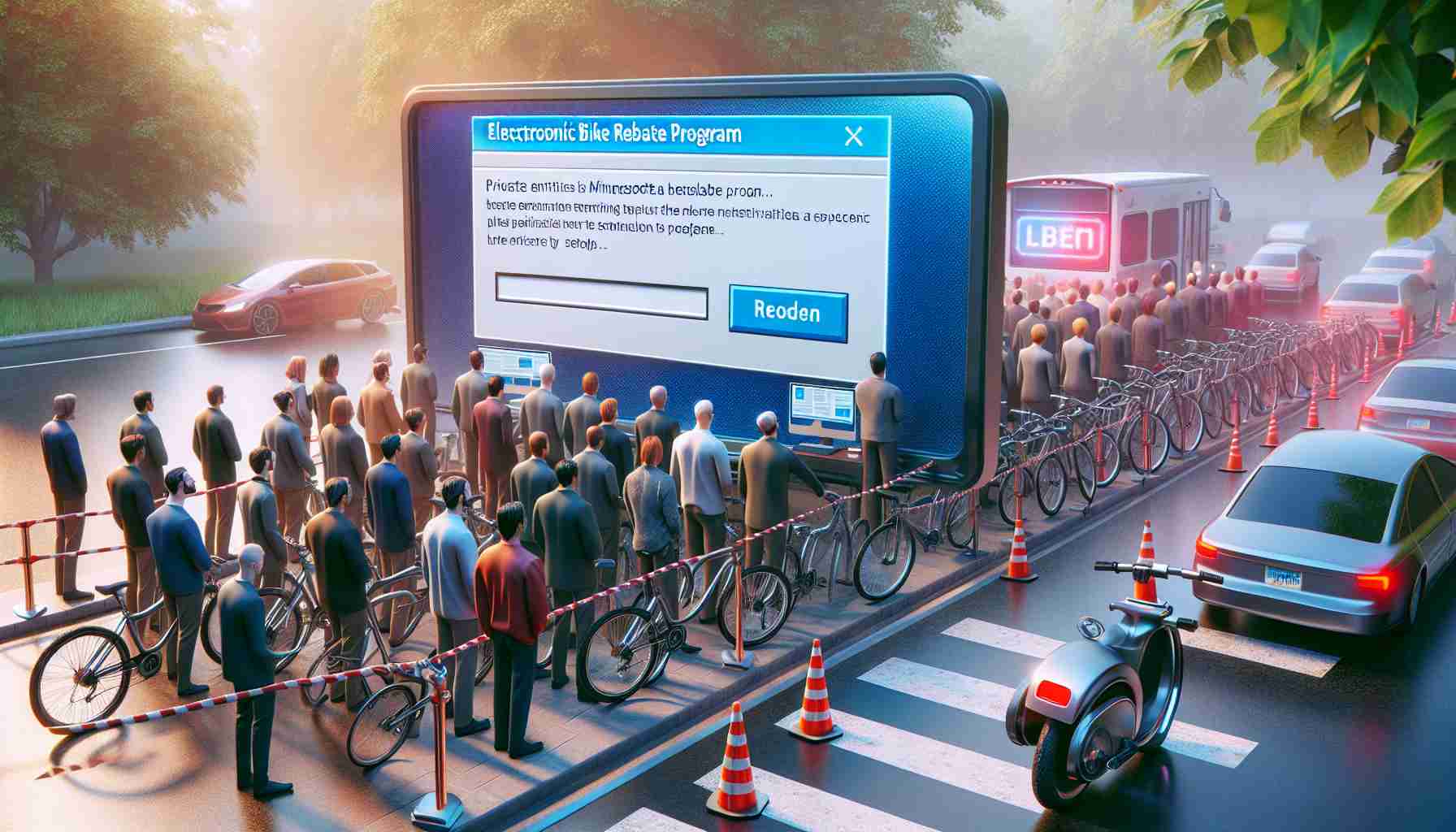Minnesota’s newly launched e-bike rebate program has encountered major obstacles, leading to the temporary shutdown of its website. The crash, caused by a surge in applications, occurred last week. Currently, the website remains inaccessible, with only a handful of applications successfully processed.
The Department of Revenue, responsible for managing the program through Minnesota IT Services, confirmed that the system’s external vendors were ill-equipped to handle the overwhelming demand. As such, the anticipated high volume of applications had exceeded the technical capacity, resulting in the website crash.
Although officials are working to fix the website, no specific timeline for its reopening has been provided. Nevertheless, once the issue is resolved, applicants can look forward to receiving a substantial rebate ranging from 50% to 75% of the e-bike’s cost, up to a maximum value of $1,500. The program sets a cap of $2 million annually, based on a first-come, first-served basis. The rebate amount is determined according to the applicant’s 2023 income.
The popularity of the e-bike rebate program is evident from the overwhelming response and the subsequent website crash. Michael Wojcik, the executive director of the Bicycle Alliance of Minnesota, expressed pride in the program’s immense popularity and highlighted the need for policymakers to recognize its appeal.
To be eligible for the e-bike rebate, interested applicants must be at least 15 years old, have resided in Minnesota for a minimum of one year, and should not be claimed as dependents by others. For more information on estimating the potential rebate or to access a list of approved bike companies, applicants are encouraged to visit the Minnesota Department of Revenue website.
While technical challenges have temporarily hindered the application process, the Minnesota e-bike rebate program remains an attractive opportunity for residents seeking affordable and sustainable transportation options.
The e-bike industry has been experiencing significant growth in recent years as more people seek sustainable and convenient transportation options. E-bikes, or electric bicycles, offer riders the ability to pedal or use a motor to assist their movement, making them an ideal alternative to traditional bikes or cars.
Market forecasts indicate that the e-bike industry will continue to thrive in the coming years. According to a report by Market Research Future, the global e-bike market is projected to reach a value of $38 billion by 2025, with a compound annual growth rate of 7.49% during the forecast period of 2019-2025. Factors contributing to this growth include increasing environmental concerns, rising fuel prices, and improvements in e-bike technology.
The Minnesota e-bike rebate program aligns with this upward trend in the industry. By offering a substantial rebate on the cost of an e-bike, it aims to incentivize residents to adopt this sustainable mode of transportation. The program sets a cap of $2 million annually, indicating the state’s commitment to promoting e-bike usage.
However, the recent website crash and temporary shutdown of the program’s website have highlighted some of the challenges that can arise when implementing such initiatives. The surge in applications overwhelmed the system’s technical capacity, leading to the website becoming inaccessible. The Department of Revenue has acknowledged that its external vendors were ill-equipped to handle the high volume of applicants.
While the website crash is a setback for the program, efforts are underway to fix the technical issues and reopen the website. Once operational, applicants can expect to receive a rebate ranging from 50% to 75% of the e-bike’s cost, up to a maximum value of $1,500. The rebate amount is based on the applicant’s 2023 income.
Despite the temporary obstacles, the popularity of the e-bike rebate program in Minnesota is clear. The overwhelming response from applicants demonstrates the appeal and demand for affordable and sustainable transportation options. Michael Wojcik, the executive director of the Bicycle Alliance of Minnesota, has expressed pride in the program’s immense popularity and emphasized the importance of policymakers recognizing its value.
To find out more about the e-bike rebate program in Minnesota, interested individuals can visit the Minnesota Department of Revenue website. There, they can access information on estimating potential rebates and find a list of approved bike companies participating in the program. The website will provide updates on the status of the program and the availability of rebates once it is operational again.
Overall, despite the temporary challenges faced by the e-bike rebate program, it remains an attractive opportunity for residents in Minnesota seeking affordable and sustainable transportation options. As the e-bike industry continues to grow, initiatives like these can play a crucial role in promoting the adoption of e-bikes and reducing reliance on fossil fuel-powered vehicles.







